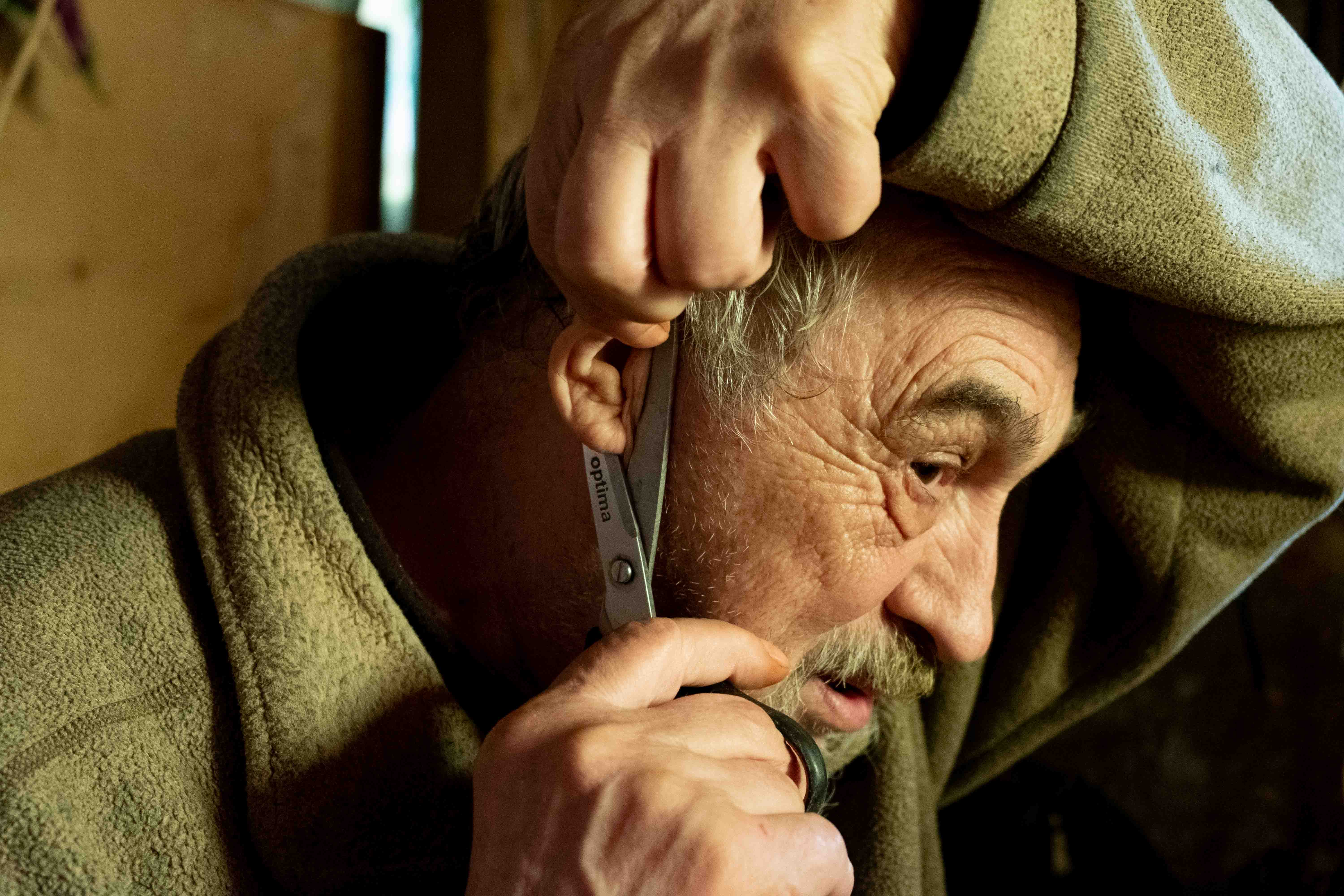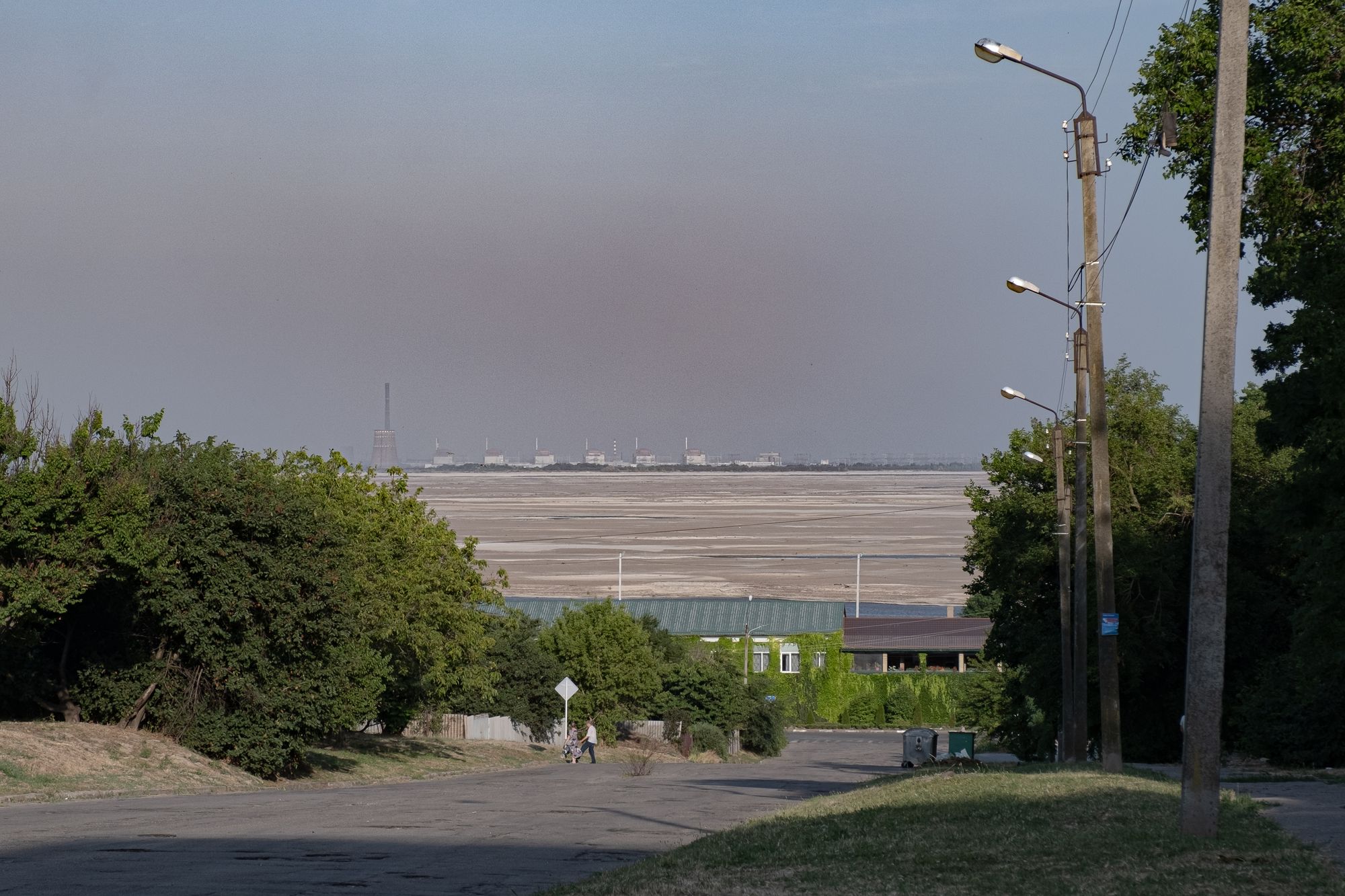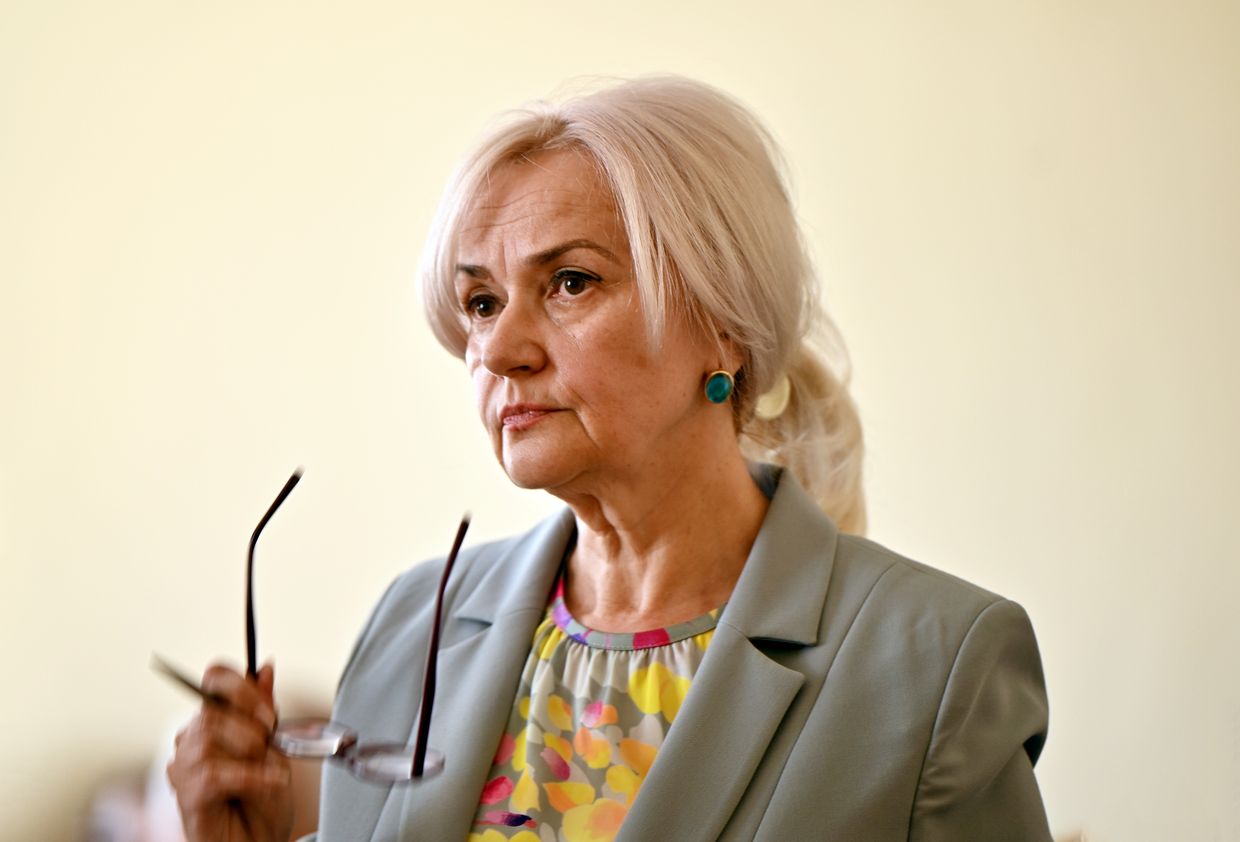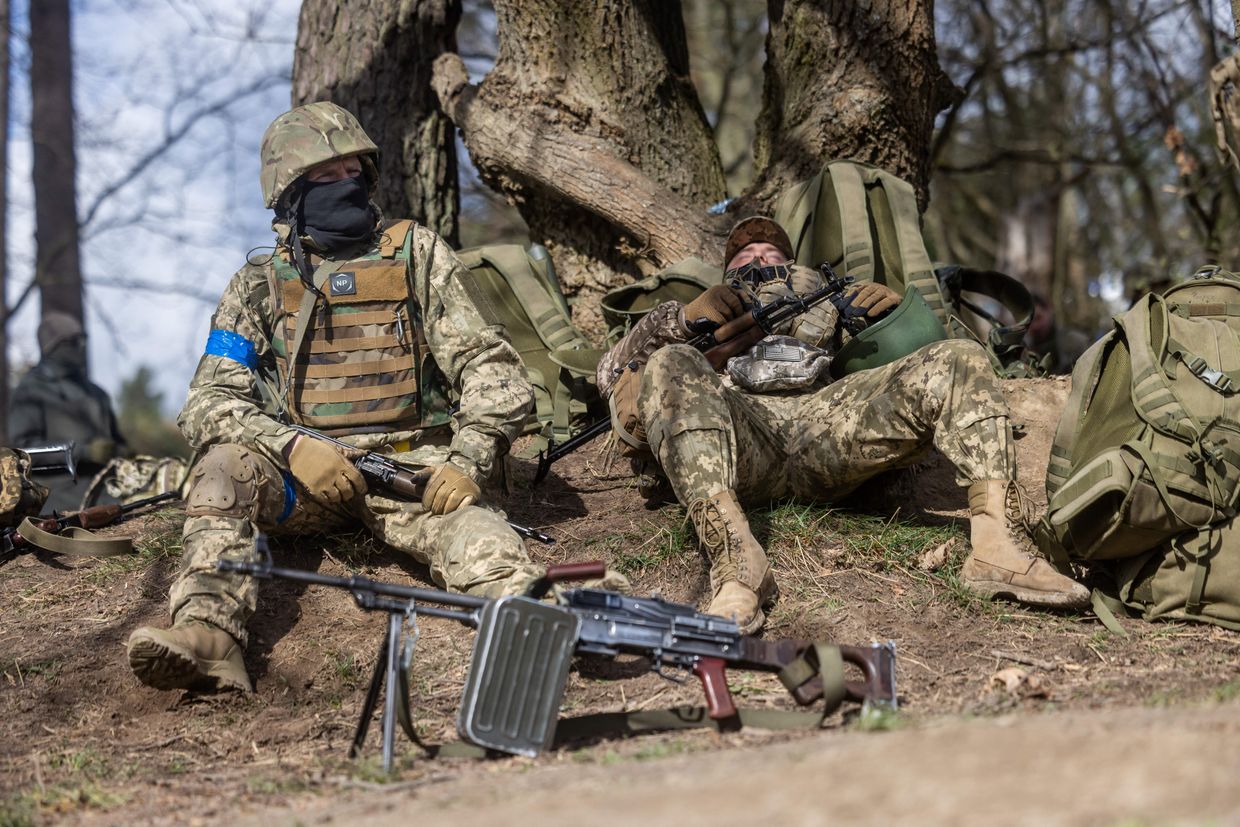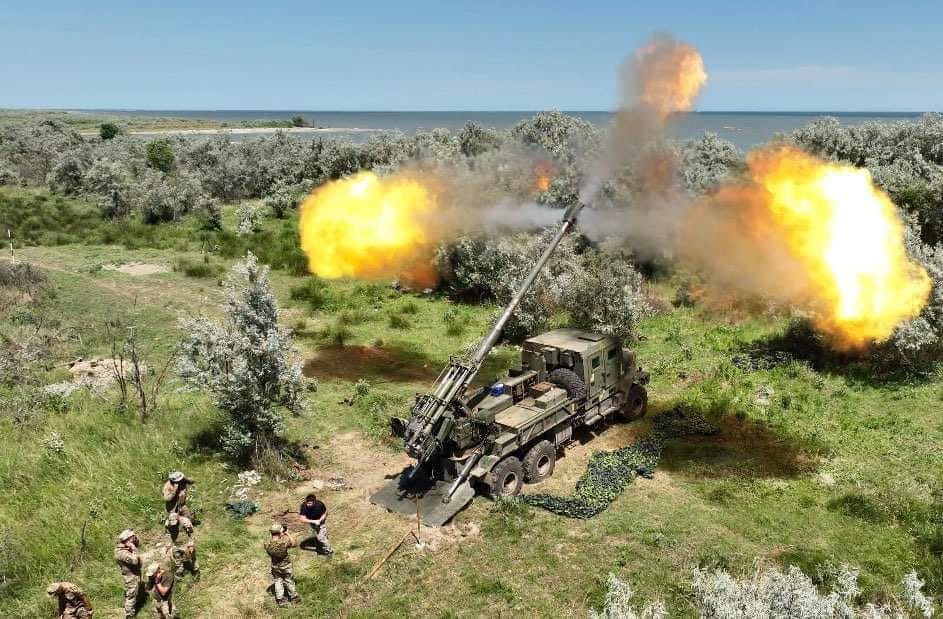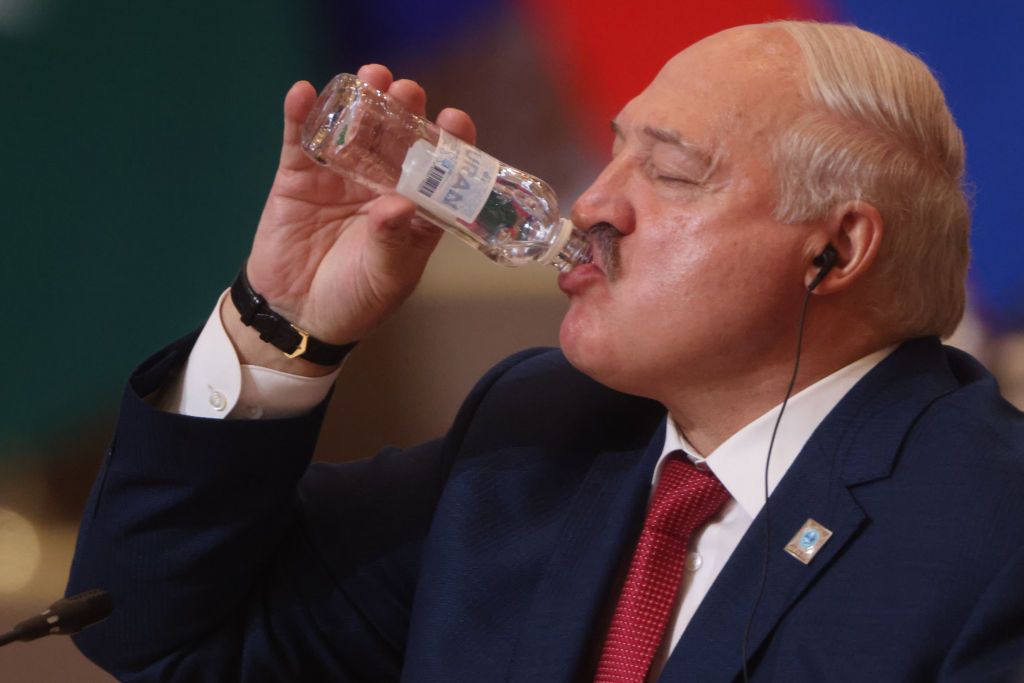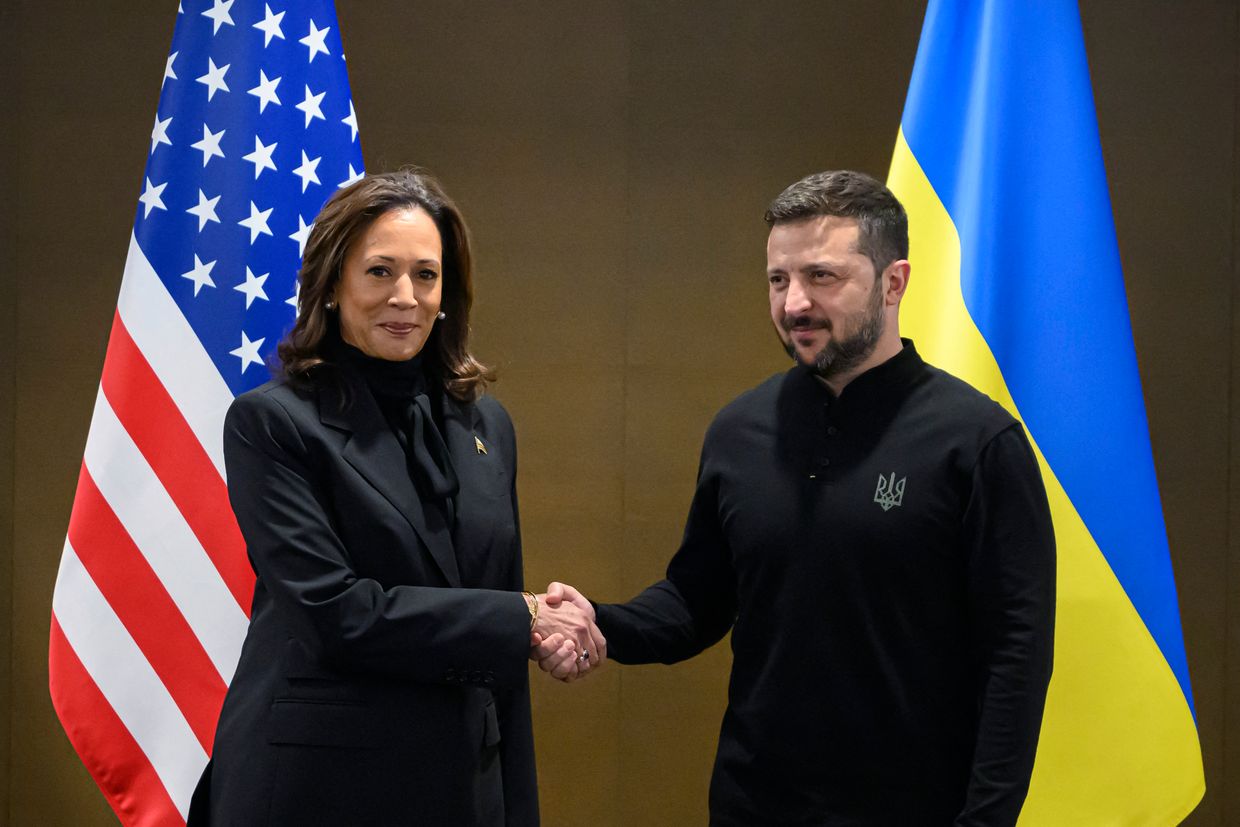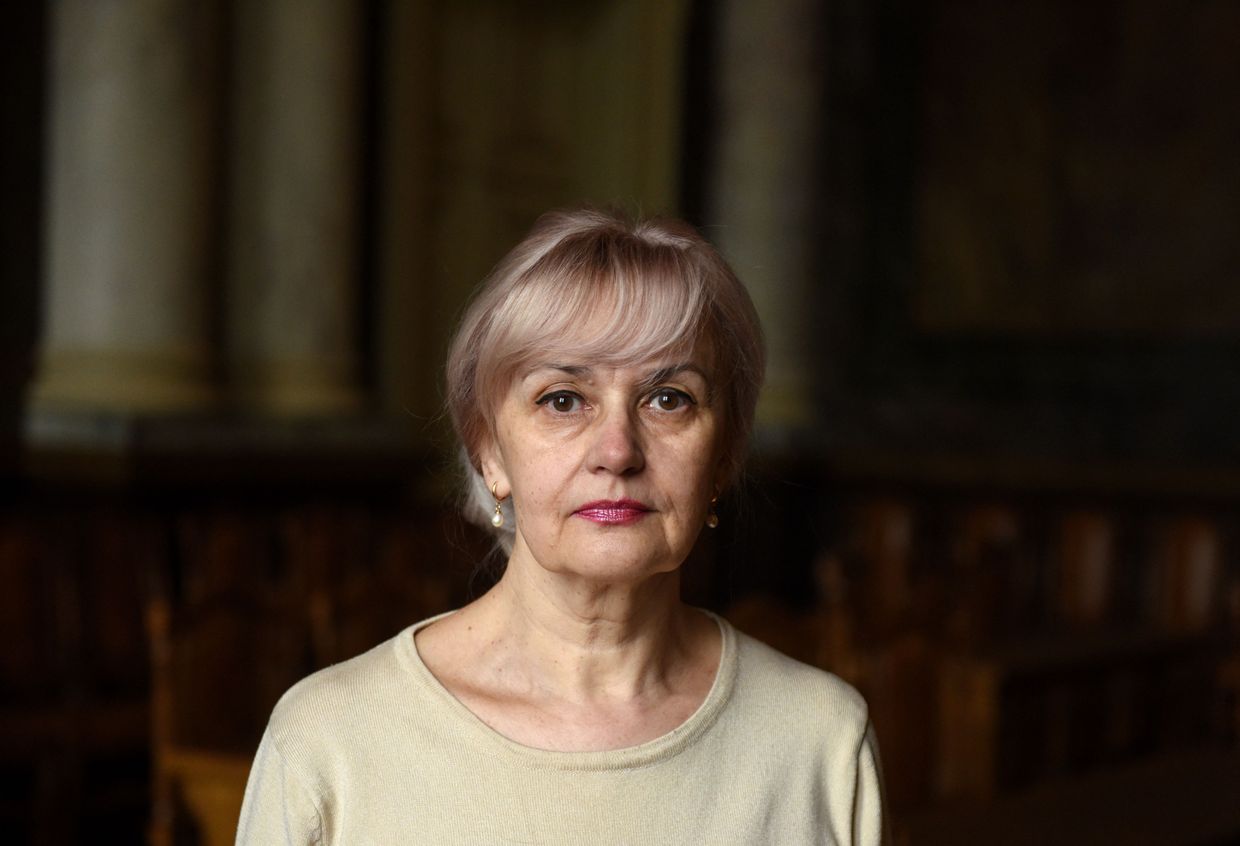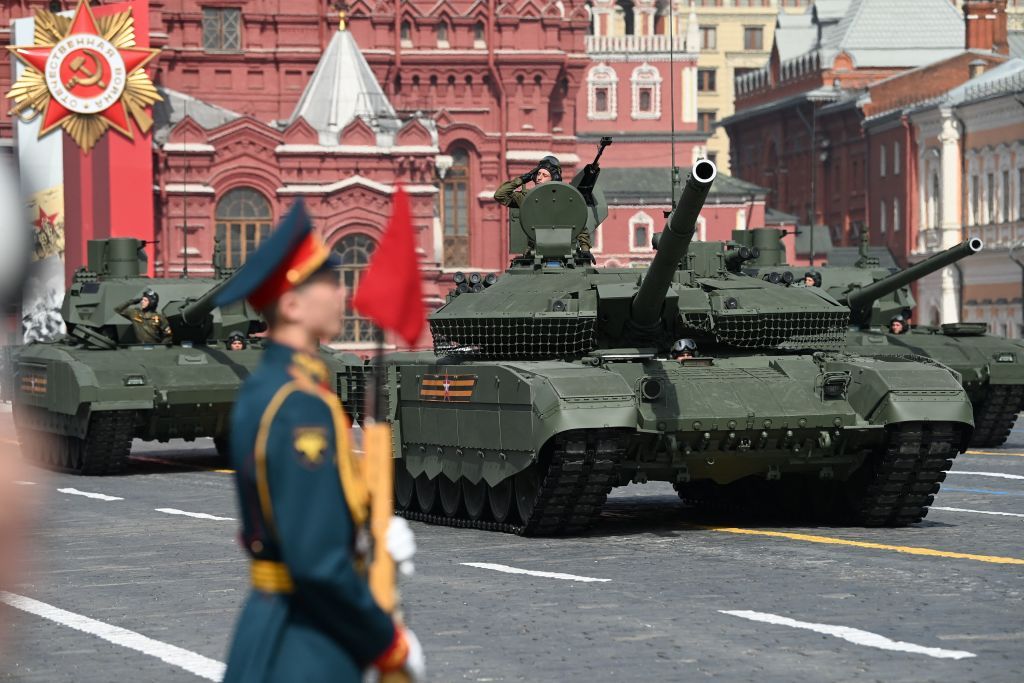Editor’s Note: This story contains descriptions that some readers may find graphic.
Standing in line in liberated Kherson for a box of pasta and canned goods with a handsome black dog on a lead, Valerii Hnedov doesn't look like someone who only three weeks prior was languishing in a Russian torture chamber.
Cutting a proud figure at well over six feet tall, the 72-year-old Hnedov was amicable and quick to invite conversation.
"Of course I'm happy the Russians are gone, they took so much from me," he told the Kyiv Independent. "My son has disappeared, we haven't heard from him in a month, since we were both in the Hole (prison) together.”
Hnedov, a former Soviet intelligence officer, spent six weeks in near unlivable conditions in Russian custody during the occupation of Kherson. In this time, he was subjected to numerous brutal torture methods, including electrocution and waterboarding, while his family members were pressed to pay a ransom for his release.
Hnedov's story is as extraordinary as it is commonplace. Testimonies of extreme brutality at the hands of Russian troops never fail to horrify, but mountains of evidence from liberated territories have shown that extrajudicial arrests, beatings, and other forms of torture were the rule rather than the exception in occupied Ukraine.
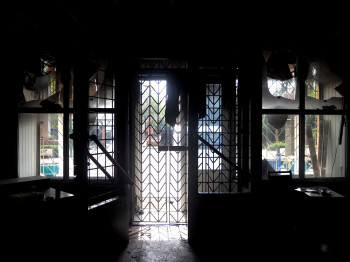
Local prosecutors say they have found four locations so far in Kherson where Ukrainians were tortured. Speaking to locals on the streets of the city, it's difficult to find someone who doesn't know of a friend or family member who was taken.
Hnedov spoke in depth with the Kyiv Independent in his apartment in central Kherson. With electricity yet to be restored, the flat was dark bar the kitchen, flooded by golden sunlight streaming in through thin curtains. Broken furniture, personal belongings piled up chaotically, and empty spaces once occupied by home appliances show the telltale signs of Hnedov's encounter with Russian occupation.
Unwanted intruders
Hnedov was born in Kherson, but has lived a life beyond the imagination of most of his fellow residents. In his younger years, Hnedov served for decades as a general in the Soviet Union's military intelligence agency, from East Germany and the war in Afghanistan to Yemen and Yugoslavia, where he met his wife Tetiana.
When Russia invaded Ukraine's eastern Donbas region in 2014, Hnedov came out of retirement for six months to lend his vast expertise to independent Ukraine as a volunteer reconnaissance consultant.
"My wife was very much against me going, so I told her I was just going to work as a guard, which I was, wasn't I?" he joked. "I was a guard, I was guarding my homeland, Ukraine."
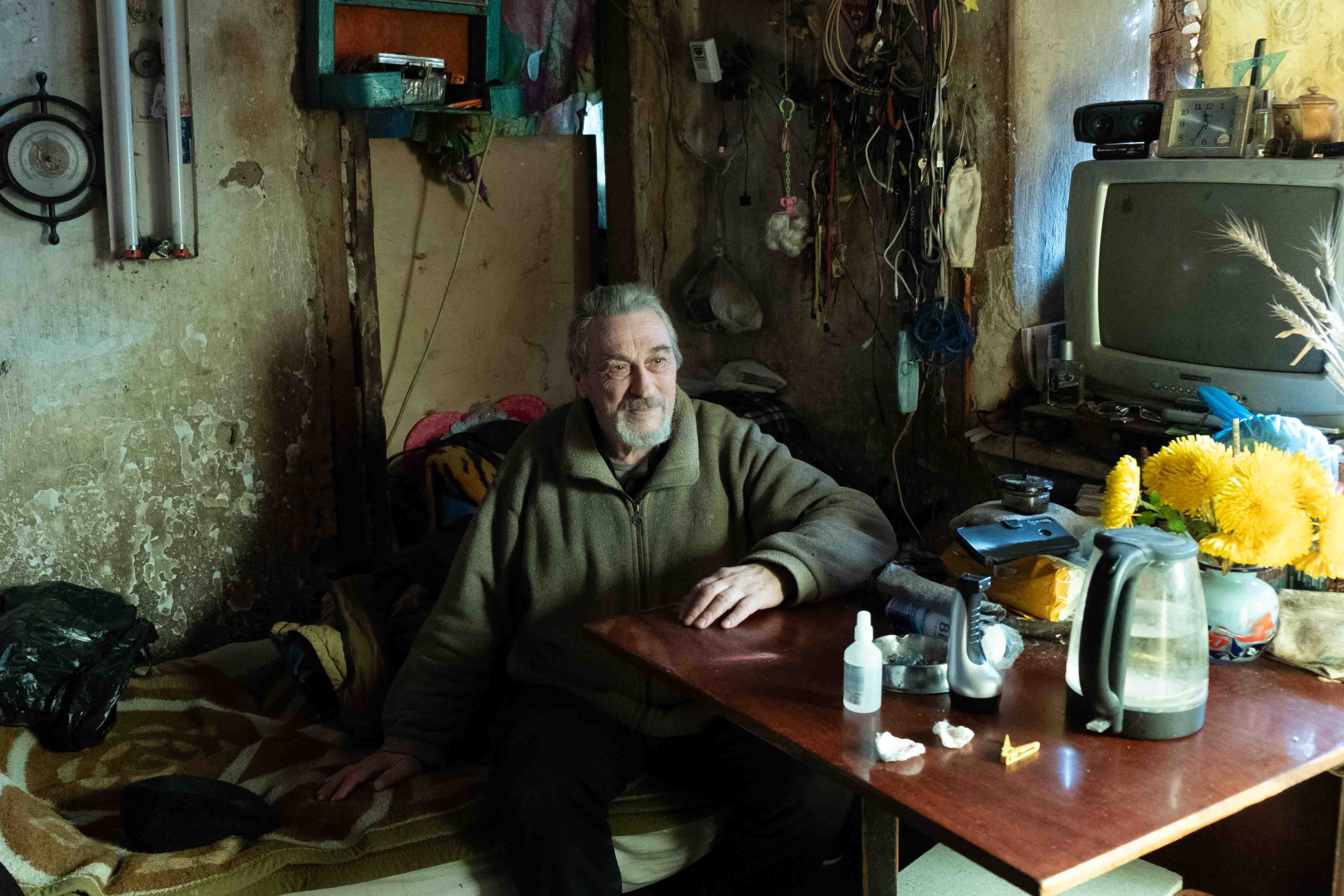
When Russian troops occupied Kherson in the first days of the full-scale invasion in February 2022, Hnedov knew that a man with a background like his own would be an early target for arrest.
First, however, they came for his stepson Rostyslav, a 22-year-old trainee officer in the Naval Academy of Ukraine. As Hnedov understands it, one evening in April, Rostyslav was drinking with friends when he began showing off with a personal firearm that Hnedov had kept, against the law, from his time in service.
"I've been told his friends betrayed him to the Russians," he said, "and that he was taken near Kakhovka," a town on the other side of the Dnipro River, still under occupation.
Over summer, masked men without insignia began to conduct unannounced raids on Hnedov's apartment, searching for more hidden weapons.
"The first time, they called me from Rostyslav’s telephone and greeted me as if it were him waiting outside," Hnedov recalled. "I was over the moon, I rushed to open the front door, and there they stood, at least half a dozen men. They put me up against the wall and headed straight up the stairs."
Hnedov had kept one of his old service pistols hidden in his apartment, which the intruders found only on their sixth raid, after throwing most of his belongings out onto the street.
On this day, recalled by Hnedov as being around Sept. 18, the masked men did away with formalities, breaking down the apartment's steel door by force. In his testimony, this was when he was first tortured, in his own home, right before the arrest.
In describing his torture, Hnedov is fond of physical reenactment. "Here, let me hold your hand down like this, but imagine my hand is a hot iron, that's what they used," he demonstrated.
"Now imagine a rubber mallet in my other hand, and I'm shouting at you: 'Where is the gun, you bastard! What's that, you can't hear, or are you staying silent on purpose, b*tch?" Hnedov's impression of the masked Russian intruder is uncanny; his voice swells in anger as he raises his arm to emulate a blow to the head with the mallet.
"Then, they took a plastic pipe, and continued to beat me over the head," he said. Hnedov's fake anger gives way to childish giggling. "Problem was, my head turned out to be stronger than the pipe."
Finally, he was arrested, with a black plastic bag placed over his head and hands bound by tightly-drawn cable ties. "'You're coming with us' is all they said," Hnedov recalled.
Into the Hole
Hnedov was taken by car to an unknown location, known informally as the Hole, a term for makeshift prisons ubiquitous throughout the former Soviet Union. "I have no idea where it was in the city," he said. "Maybe it was some important building at some point, I remember the mosaic floors in one room."
When Hnedov was first brought in, still unable to see anything because of the bag, a meeting was arranged with his son in an interrogation room. Unable to see Rostyslav through the bag, the exchange was brief yet agonizing.
"I heard his voice," Hnedov recalled. "'Dad, you taught me to tell the truth,' he said. 'Yes, I taught you to tell the truth,' I said. 'But before you speak, you need to think, a word is not a sparrow, once you let it out you cannot catch it again.'"
Then, Hnedov was taken down a narrow, dark staircase for his own personal interrogation, which came with another round of torture. Before the interrogator began to question Hnedov, he had a disclaimer to add.
"'We don't give a f*ck what happens to you,' they told me. 'You could die in five minutes and we will drag you out of here and throw you in the Dnipro, or on the roadside outside the city. We won't bury you, you'll just lie there and rot.'"
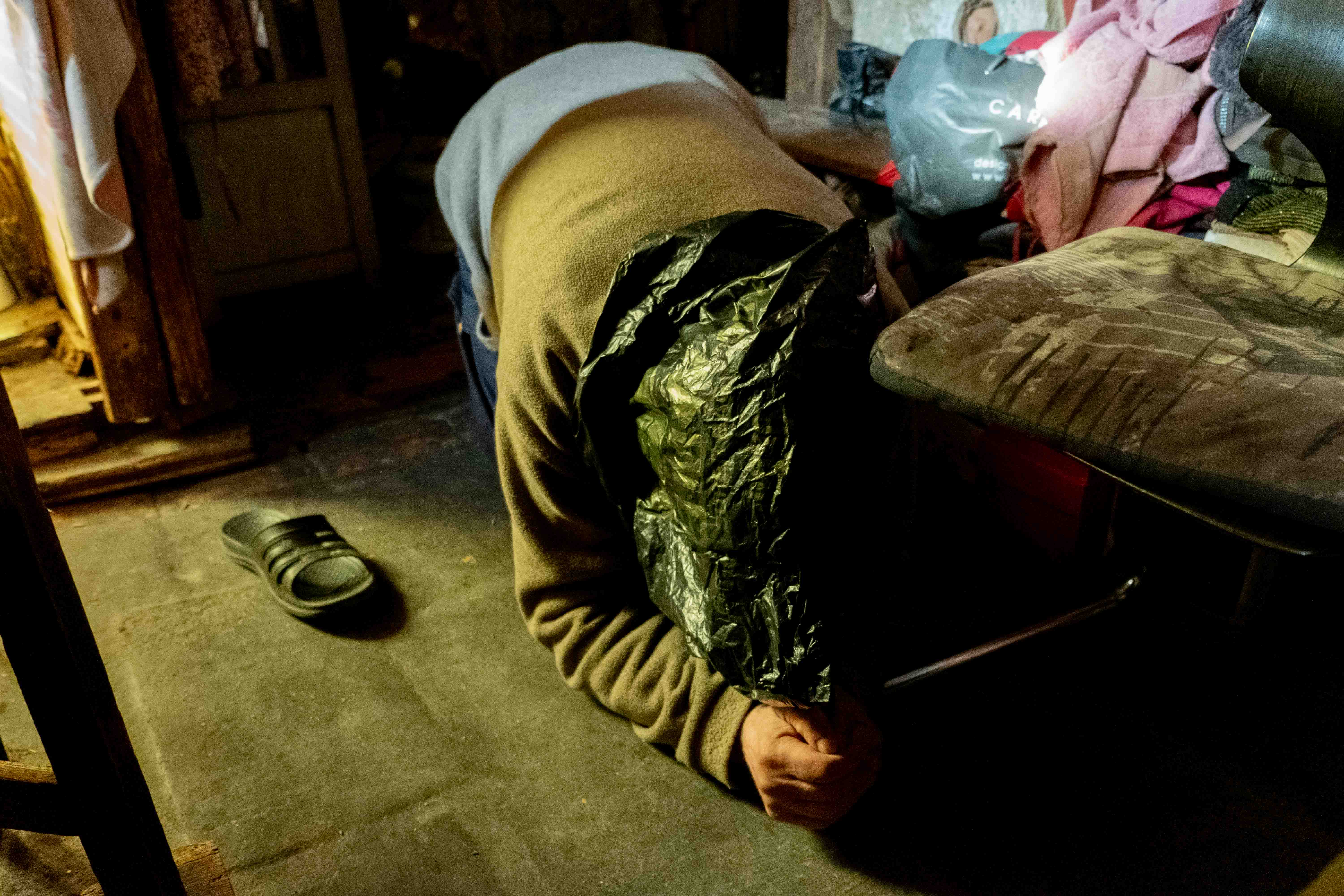
Here, in a practice matching testimonies all over the liberated territories, electric shocks were the instrument of choice, this time administered with a modified defibrillator.
With two men pinning Hnedov down by the spine, and one holding his head, naked wires were attached to each of his legs, through which the shock was administered.
Diving into his memories of torture by electric shock, Hnedov again manages to inconceivably recall the humorous.
"As soon as they released this excruciating current, I bit one of the guys in the ear!" he said. "I swear to God, I had no control over myself, it was pure reflex."
"I guess that's why he was holding my head down... still got him though."
Hnedov was electrocuted two more times in that session, with his captors changing the position of the wires periodically. "By the third time, my heart was beating like this, completely out of time," he said, rapping his knuckle on the table to demonstrate.

Routine cruelty
Hnedov was held with the bag over his head and in the plastic handcuffs for the first five days of his imprisonment. "If the bag came off, they would make you regret it," he said. "One would stand on your hands, while the other beat you over the head."
As has been recorded in testimonies of life in makeshift prisons across occupied Ukraine, conditions in the Hole were miserable for the six weeks Hnedov spent there.
Five prisoners, including two women, were kept in a tiny room with only one children's mattress between them. They were fed three spoonfuls of porridge every five days, and forced to relieve themselves into one plastic bottle, which stood in the corner and was rarely emptied on time.
There were no windows in the room, just a light bulb that was on 24 hours a day. "We had no way of knowing if it was day or night," he said, "apart from by the rule that we were forbidden from sleeping during the day."
It soon became clear that there was no information Hnedov could provide that would be of any use to the Russians. Failing that, they instead hoped to use him for personal material gain. "The second time they took me into the interrogation room, they told me they were thinking about releasing me," he said.
Using Hnedov's phone, confiscated upon his arrest, his captors called his daughter, who lives in Germany. She was given the option to free her father from captivity, but only at a price, a $480,000 ransom. "My daughter told them clearly that she doesn't have that kind of money," he said. "Then they tried the same thing with my niece in Israel but with the same result, they were quite disappointed."
Not losing hope that his family would change their mind, the Russians forced Hnedov to sign a document saying he was treated well in custody and had no legal complaints against his faceless hosts.
The conversation was accompanied by another round of beatings and electrocution. When Hnedov initially refused to sign the statement, one of the captors snipped at Hnedov's ear with scissors, threatening to cut it off entirely.
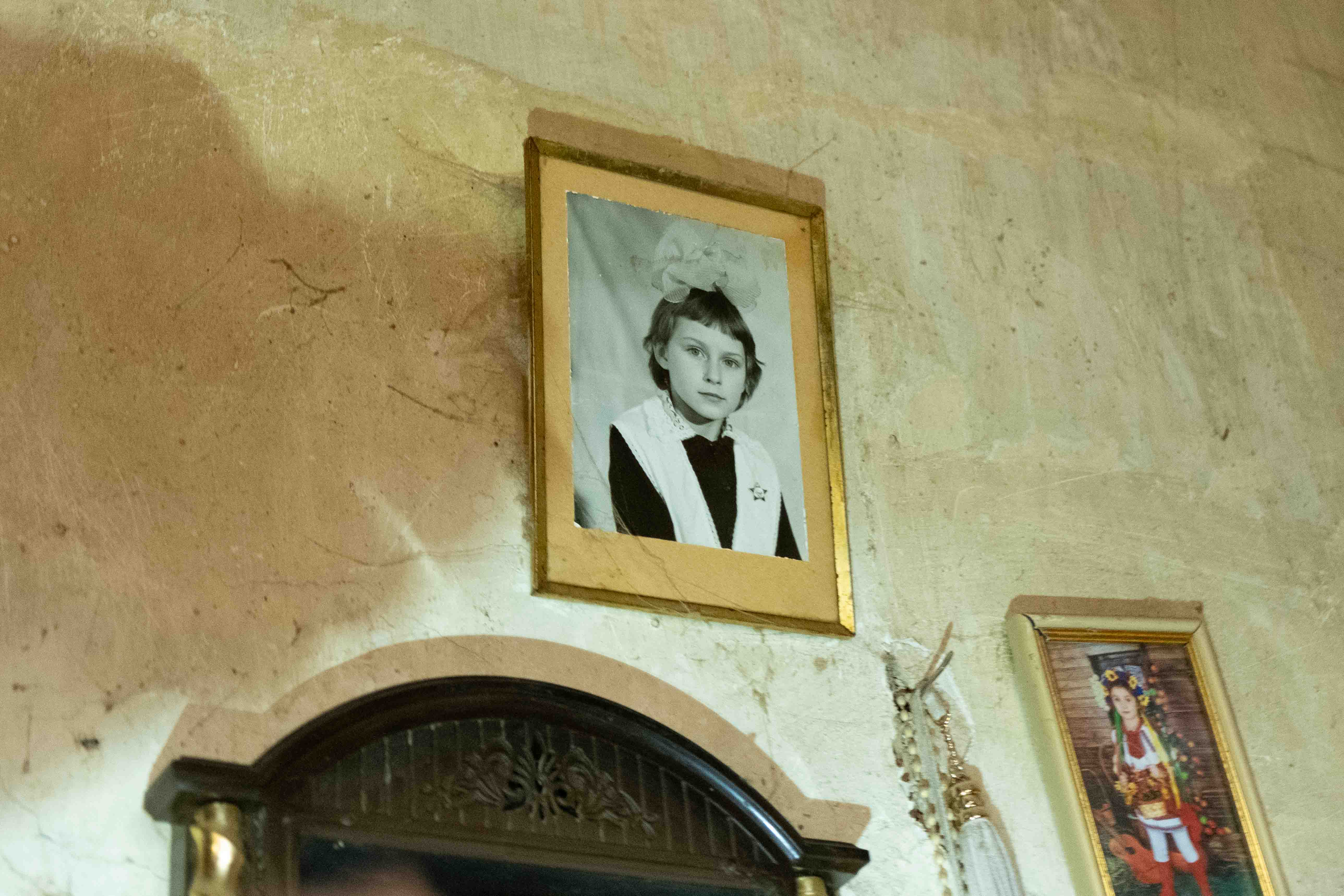
The use of family members as bait or blackmail was a common theme among Hnedov's fellow inmates. "There was one young man, Kostya, he was held longer than any of us," he said. "They were after his father, and using him as a hostage."
The third and last time Hnedov was tortured in the Hole, his captors had a new method in store for him, a form of waterboarding affectionally known since Soviet times as the "elephant." With Hnedov lying on his back, a gas mask was placed tightly over his head. The tube connecting the mask to the respirator (the "trunk") was raised up and filled with water, which flooded the mask.
For Hnedov, experience in captivity during his service helped him endure the treatment, but didn't make it any more pleasant. "I was in a trance," he said. "I knew that if I swallowed, I would be a dead man, and if I held out until the end, the result would be the same, but at least my body wouldn't be full of water."
"I kept telling myself, I didn't survive everything the Arabs put me through (in Yemen) just to die here at the hands of some Russians."
By this time, the Russians were no longer bothered with the formalities of questioning. "They were just trying to terrify me," he said. "By the end the only thing they were saying to me was 'Remember, we didn't touch you here, we didn't take anything. You came here on your own will.'"
Liberation
Much in thanks to his own physical endurance, 72-year-old Hnedov did eventually make it out of the Hole after six weeks of imprisonment. "Without saying a word, they came for me in the cell, put the bag back over my head, wrapped me in some industrial netting, and threw me in the back of a car."
Dropped off in the dark of night in the city center, Hnedov rolled out of the netting and made the short walk home, where his wife Tetiana was waiting. "I called out to her from the yard and she burst out the front door," he recalled. "Hugs, kisses, I love you my dear – it was all there."
Hnedov was freed from Russian captivity on Oct. 29, less than two weeks before his native Kherson was itself liberated. More importantly, it was Tetiana's birthday.
With liberation came euphoria and a great sense of relief for Hnedov. Still, as much as his past life may have prepared him, this nightmare will not leave him soon.
"Do you remember your own mother and father, could you erase them from your memory?" he asked. "Well how could I possibly erase this, I'm a human being, not a computer."
"I've been witness to a lot of death in my life; I once had to take a man to the morgue who had been cut clean in half in battle," he said. "I just don't want my children to go through the same thing."
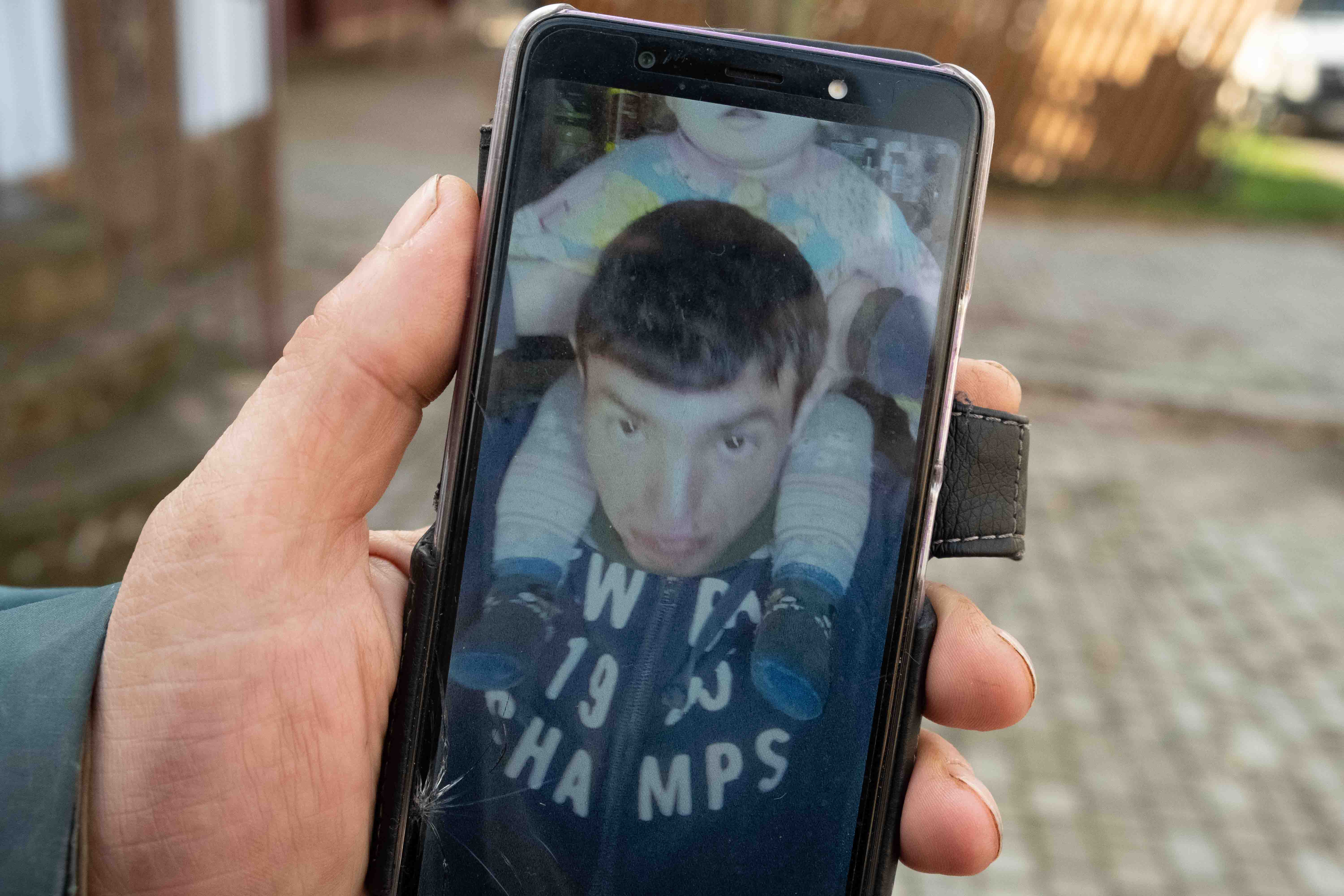
Hnedov's daughter was safe overseas, and he and Tetiana hope to be able to see her soon. The same cannot be said about Rostyslav, from whom Hnedov has heard nothing since their brief exchange through black plastic on the first day in the Hole. All hope is not lost, but for now, Hnedov and his wife can only see him through grainy photos left on Tetiana’s phone.
In the circumstances, Hnedov's endless reserves of human positivity are nothing short of extraordinary. "I'll explain why," he said, disappearing to the kitchen to retrieve a crisp, fresh apple.
"Look at this, take a bite, it's clean I promise," he said. "Delicious, isn't it? Because it comes from our land, it's Ukrainian. How can I not love this life of mine, at home in my dearest Ukraine?"
"That's all there is to it. Bon Appétit!"
Note from the author:
Hi, this is Francis Farrell, sharing the story of an incredible man who went through hell in occupied Kherson. Stories like this are a reminder of what occupation looks like for the millions of Ukrainians still living under Russian rule. Ukraine's army has no intention of slowing down, and we will continue to bring you the latest. Please consider continuing to support our reporting.



